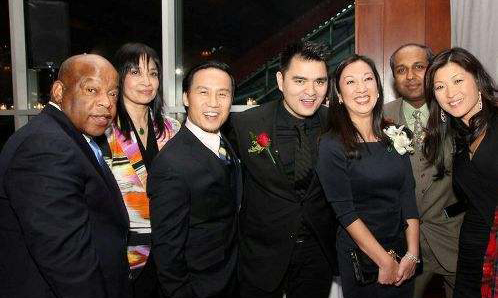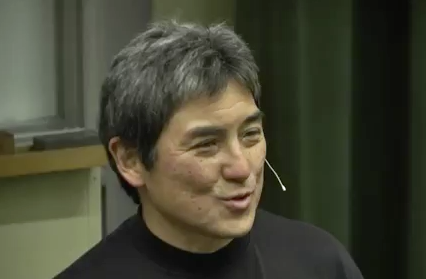Business Spotlight
For Love of Money by Marilyn Tam
Business
To Lie or Not to Lie by Marilyn Tam
TO LIE OR NOT TO LIE
By Marilyn Tam
Scott Thompson, the four months old CEO of Yahoo, was forced to resign because he lied on his resume. Worse, he lied about his lying and was found out. He denied that he inserted an extra degree into his resume, and then he blamed the recruiting firm he worked with for doing so. The recruiting firm, wanting to maintain their reputation, showed that it was Mr. Thompson who lied. Net result is that Mr. Thompson now has much more time to contemplate the efficacy of lying.
The question is, what are we willing to tolerate in our leaders’ behavior and reflectively in our own? Lying is bad. We’ve been told that ever since we were little. Or have we? Haven’t we also been told, “don’t say that, it will make them feel bad”, and there are such things as “white lies”, as compared to I guess black lies, which are bad.
So we have grown up with some sense of expediency in what we call lying. Why do people lie? Is it because there is a perception that one can get ahead faster by lying than by telling the truth? Why would someone who is already well credentialed and respected feel the need to embellish his or her story? Is it a basic human nature to try to appear more than we are?
Justin Chon stars in 21 and Over
Hollywood
February 26, 2013
What?!! An Asian American male star in a Hollywood movie that isn't a Kung Fu film?
Justin Chon ("Twilight"), steps into the spotlight as the lead character in the comedy 21 and Over, opening in theaters nationwide March 1.
Chon, 31, was born in Garden Grove in Orange County, California, and was raised in Irvine, California. He attended business school at the University of Southern California. At age 20, Chon began taking acting lessons, inspired by growing up watching his father in black and white films. His father is a former child actor from South Korea.
AsianConnections' Suzanne Joe Kai chatted with Justin about his new role, breaking stereotypes, and what's next in his fast-rising career. (For the full interview transcript click on the blue headline link above.)
Justin: Hey Suzanne, thank you.
Suzanne: You’re right from Orange County, California!
Justin: Yeah, Irvine. Yeah, born and raised. I was born in Garden Grove Hospital.
Suzanne: Can you describe your role in your new film 21 and Over coming out in theaters March 1, 2013?
Photos: AALDEF Honors Congressman John Lewis, Jose Antonio Vargas, and Simone Wu with 2013 Justice in Action Awards
New York City
Congressman John Lewis, Member of the U.S. House of Representatives (Georgia), Jose Antonio Vargas of Define American, and Simone Wu of Choice Hotels International, Inc. received the Asian American Legal Defense and Education Fund’s (AALDEF) 2013 Justice in Action Awards at AALDEF’s annual Lunar New Year benefit, held at PIER 60 Chelsea Piers in New York on February 19, 2013.
2013 AALDEF Justice in Action honorees Jose Antonio Vargas, Simone Wu and Congressman John Lewis. Photo by Lia Chang
Since 1987, AALDEF has presented the Justice in Action Awards to exceptional individuals for their outstanding achievements and efforts in advancing social justice. The awards were presented by Rep. Grace Meng, the first Asian American to represent New York in Congress, Tony Award-winning playwright of M. Butterfly David Henry Hwang, and Gordon Smith, CEO of Consumer and Community Banking, JPMorgan Chase.
Congressman John Lewis, Member of the U.S. House of Representatives (Georgia), Margaret Fung, AALDEF executive director, BD Wong, Jose Antonio Vargas of Define American, and Simone Wu of Choice Hotels International, Inc., Sree Sreenivasan, Chief Digital Officer at Columbia University and Juju Chang, Emmy Award-winning correspondent for ABC News Nightline at the Asian American Legal Defense and Education Fund’s (AALDEF) 2013 Justice in Action Awards held at PIER 60 Chelsea Piers in New York on February 19, 2013. Photo by Lia Chang
Guy Kawasaki - The Top Ten Mistakes of Entrepreneurs
UPDATE:
We received alot of positive feedback to our posting of Guy Kawasaki's Spring, 2013 talk at the UC Berkeley Startup Competition (Bplan).
The former chief evangelist of Apple and co-founder of Garage Technology Ventures is such a good speaker that you wanted to hear more of him. He was the keynote speaker at the first Donald W. Reynolds Governor's Cup Business Plan Competition at the University of Central Oklahoma in Edmond in 2005, and its timeless.
You
can
click
on
the
top
blue
headline
to
the
full
story
and
his
video
or
The Associated Press Drops the Term "Illegal Immigrant"
New America Media, News Report, Posted: Apr 02, 2013
Image credit courtesy New America Media
The Associated Press announced Tuesday, April 2, 2013 that it will no longer use the term "illegal" or "illegal immigrant" to describe a person. Senior Vice President and Executive Editor Kathleen Carroll wrote in a blog post that the decision was part of the company's attempt to rid their Stylebook of labels. She did not specify which term the Associated Press would use instead.
But the question doesn't only apply to English-language news media. New America Media asked editors of U.S. in-language media outlets what terms they used to describe undocumented immigrants (in Chinese, Korean, Punjabi, Russian, Spanish, Tagalog and Vietnamese) -- and found some surprising responses. - Report courtesy of New America Media (For the full report click on the blue headline above)
RELATED:
New America Media, News Report, Elena Shore, Posted: Sep 19, 2011
Before publishing a story on immigration, every editor faces a question: What term should be used to describe an immigrant who is in the United States illegally?The AP Stylebook states that the preferred term is “illegal immigrant” -- but that “illegal” should not beused as a noun. The







